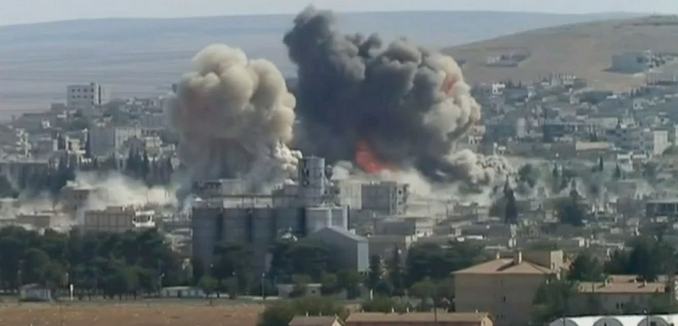Yesterday, Turkey denied suggestions that it granted the United States permission to use the Incirlik air base to launch attacks against the Islamic State of Iraq and Syria (ISIS).
A statement issued by the office of Prime Minister Ahmet Davutoglu said talks are continuing between Ankara and Washington over whether to permit U.S. forces to use Incirlik in the fight against the Islamic State, a radical al-Qaeda offshoot that has captured parts of Syria and Iraq. However, “there is no new agreement on the Incirlik issue,” the statement said.
“There are requests and expectations and the negotiations continue,” it added.
The Obama administration has been pressing Turkey to allow warplanes to use Incirlik — where the United States bases aircraft under existing NATO agreements — as part of an effort by a U.S.-led coalition to roll back Islamic State gains.
Turkey allows the United States the use of Incirlik to deliver humanitarian aid or for surveillance, but allows no airstrikes to be launched from the air base. The Post observes that allowing American bombers to fly out of Incirlik “would represent a powerful signal of Turkey’s willingness to fully engage in the international coalition formed by the United States to fight the militants.”
As the fight for Kobani- a Syrian city near the border with Turkey- continues, Kurdish fighters who are defending the city from ISIS are complaining that Turkey is blocking arms from reaching them.
Turkish warplanes have struck at fighters belonging to the Kurdistan Workers Party (PKK) inside Turkey. According to Reuters, the strikes against the PKK followed rioting by Kurds “in anger at the government for refusing to help defend the Syrian border town of Kobani.”
Hurriyet newspaper’s website said Turkish warplanes had hit PKK targets in Turkey on Sunday, the first such strikes since a peace process began in Turkey two years ago. The strikes were also reported by media sympathetic to the PKK.
Reuters further reported that a number of wounded Kurdish fighters from Kobani have died at the Mursitpinar border crossing, as Turkish soldiers refused to allow them to cross the border and receive medical treatment.
In addition to refusing the United States approval to use its airbase to launch attacks against ISIS, Turkey has also allowed ISIS to sell oil to raise money and openly recruit Turks to fight.
In Where the Shadiest Players find a Home, which appeared in the September 2014 issue of The Tower Magazine, Jonathan Schanzer observed:
It is also unclear what role Turkey has played in the rise of the jihadi movement known as the Islamic State (IS) in war-torn Syria. However, it has become increasingly clear that the rise of IS and other dangerous groups can be linked to the dangerous and permissive border policies Turkey has employed over the past two years. It was only last year that U.S. President Barack Obama chided Erdoğan for “letting arms and fighters flow into Syria indiscriminately and sometimes to the wrong rebels, including anti-Western jihadists.”
[Photo: Karl-Ludwig Poggemann / Flickr ]




